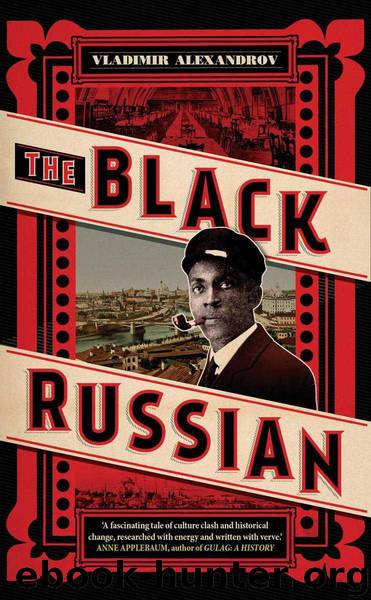The Black Russian by Alexandrov Vladimir

Author:Alexandrov, Vladimir [Alexandrov, Vladimir]
Language: eng
Format: azw3, epub
ISBN: 9781781855188
Publisher: Head of Zeus
Published: 2013-06-01T04:00:00+00:00
Between five thousand and seven thousand people had been killed. But on November 20, Moscow’s Military-Revolutionary Committee announced that it had won and that all the cadets and its other opponents had either surrendered or been killed.
The first weeks after the fighting stopped were an anxious time in Moscow. No one knew exactly what to expect from the Bolsheviks, but the fact that they had seized power in Petrograd by force and had used it indiscriminately throughout the city was an ominous sign. Nevertheless, people in Frederick’s world had little choice but to try to live as before, despite the widespread destruction, dislocations, soaring prices, and scanty food and fuel supplies. Maxim had escaped damage in the fighting, and the theater director who had leased it tried to continue with his old repertory—a hodgepodge of melodramas, comedies, lighthearted French song and dance numbers, and, in a gesture to the times, an occasional, ponderously serious play (this unappetizing mix would not survive for very long). Similarly, during the last months of 1917, Aquarium continued serving up its mostly high-minded fare as the official theater of the Moscow garrison. Since both places were still functioning and making money, so was Frederick.
However, as an especially harsh winter descended on Russia, the new regime began to reveal its fundamentally belligerent face, and the danger to Frederick and his ilk became apparent. The Bolsheviks’ most urgent task was to secure their grip on power by eliminating all external and internal threats to it. They would eliminate the external threat by getting Russia out of the Great War, and the internal threat by unleashing a new kind of war against entire classes of people they considered their enemies.
In the Bolsheviks’ Marxist worldview, the war that had engulfed Europe was being waged by “bourgeois capitalist” powers with selfish economic and geopolitical interests that had nothing to do with, and in fact were opposed to, the genuine needs of the workers and peasants. Thus, immediately after seizing control, the Bolshevik regime offered a cease-fire to the Germans, and on March 3, 1918, the two sides signed the Treaty of Brest-Litovsk. The Bolsheviks agreed to give up one-quarter of what had been the Russian Empire’s territory, population, and arable land; three-quarters of its iron industry and coal production; and much else besides. The terms were brutal, but the Bolsheviks were now free to turn their attention to their enemies within.
Their identification of who these were might have struck Frederick as grotesquely familiar. Just as a black person could not escape racist categories in the United States, everyone in the new Soviet state was now defined by socioeconomic class; and despite the seeming differences, the Marxist and communist concept of “class” functioned, perversely, as a quasi-racial label. In the eyes of the Bolsheviks, you were indelibly marked by what you did or had done for a living, and people with money, people who owned property or businesses, as well as the nobility, the clergy, the police, the judiciary, educators, army
Download
This site does not store any files on its server. We only index and link to content provided by other sites. Please contact the content providers to delete copyright contents if any and email us, we'll remove relevant links or contents immediately.
Fanny Burney by Claire Harman(26592)
Empire of the Sikhs by Patwant Singh(23069)
Out of India by Michael Foss(16845)
Leonardo da Vinci by Walter Isaacson(13310)
Small Great Things by Jodi Picoult(7113)
The Six Wives Of Henry VIII (WOMEN IN HISTORY) by Fraser Antonia(5494)
The Wind in My Hair by Masih Alinejad(5085)
A Higher Loyalty: Truth, Lies, and Leadership by James Comey(4946)
The Crown by Robert Lacey(4802)
The Lonely City by Olivia Laing(4796)
Millionaire: The Philanderer, Gambler, and Duelist Who Invented Modern Finance by Janet Gleeson(4461)
The Iron Duke by The Iron Duke(4348)
Papillon (English) by Henri Charrière(4252)
Sticky Fingers by Joe Hagan(4186)
Joan of Arc by Mary Gordon(4098)
Alive: The Story of the Andes Survivors by Piers Paul Read(4017)
Stalin by Stephen Kotkin(3956)
Aleister Crowley: The Biography by Tobias Churton(3628)
Ants Among Elephants by Sujatha Gidla(3459)
